Tucked away on Traction Avenue in Downtown Los Angeles is a small, unique shop in a brick building that focuses on two things, and two things only: pie and coffee. The wooden sign that dangles above the entrance reads ‘THE PIE HOLE’.
This rather European concept has become a neighborhood favorite, and a sanctuary for those seeking refuge from the ever-growing specialty coffee shops that continue to sprout on every corner, touting fancy brewing methods and coffee that—some claim—have been derived from unicorn tears. Entering the rather unassuming establishment brings a sense of warmth, not only from the freshly baked pies, but from the people too.
Whereas coffee might be the vehicle for social interaction, pie is the vehicle for happiness.
I see a woman sitting outside with a slice of the famous Maple Custard Pie and a latte; with every bite, she is floating further away from reality. The loud, idling, bus on the sidewalk, or the man yelling obscenities to himself over a parking ticket because he forgot to “feed the meter” doesn’t seem to phase the woman. She continues to dig into this slice of perfection with a smile on her face.
Sitting across from me are the two founders of The Pie Hole: Matt Heffner and Sean Brennan. I’m eager to hear their story and delighted to know that it begins with mom.
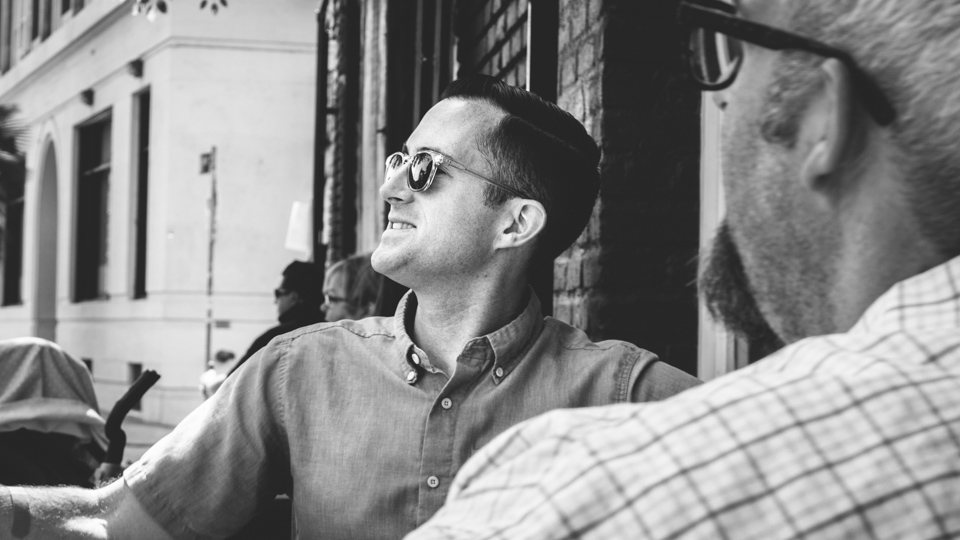
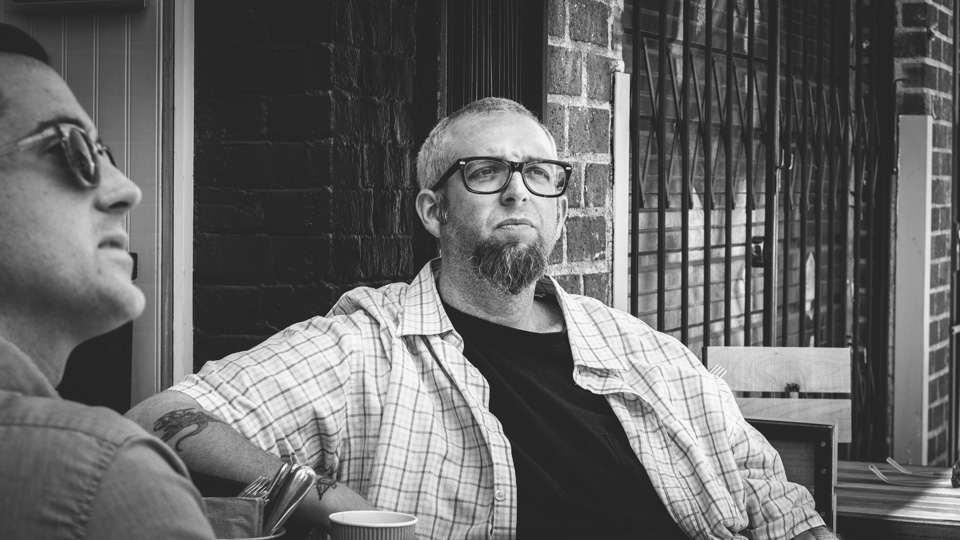
How did the Pie Hole get started?
Matt: Since I was a kid, my mother always wanted to sell pies. What you see here is a culmination of everybody. Sean had a vision and my mom had an idea about selling pies. We wanted to bring it together.
Sean: When I tell the story and see it in my head, I always think of Matt as a little kid with flour on his face and eating dough. And mom making pie and being like, “One day, we’re going to have a pie shop, you and I.” They’ve wanted to open a pie shop forever.
Matt: I always wanted to own my own business—a cafe or restaurant type thing. Mom started talking about selling pies and opening up a little stand in her hometown. It would have been like white noise. You can go to a gas station and they have baked goods from a lady who lived in the area and they would wrap them up and put a sticker on it. So I’m like “We should do this, scale it, and do it out here [in Los Angeles].” Mom thought it was a fantastic idea and she became a driving force at that point. I would get scared and she was pulling checks out of her accounts and booking a plane ticket to come out here. Before that, I talked to Sean to lay the framework. Sean is a genius when it comes to branding and the groundwork for how the restaurant was going to work.
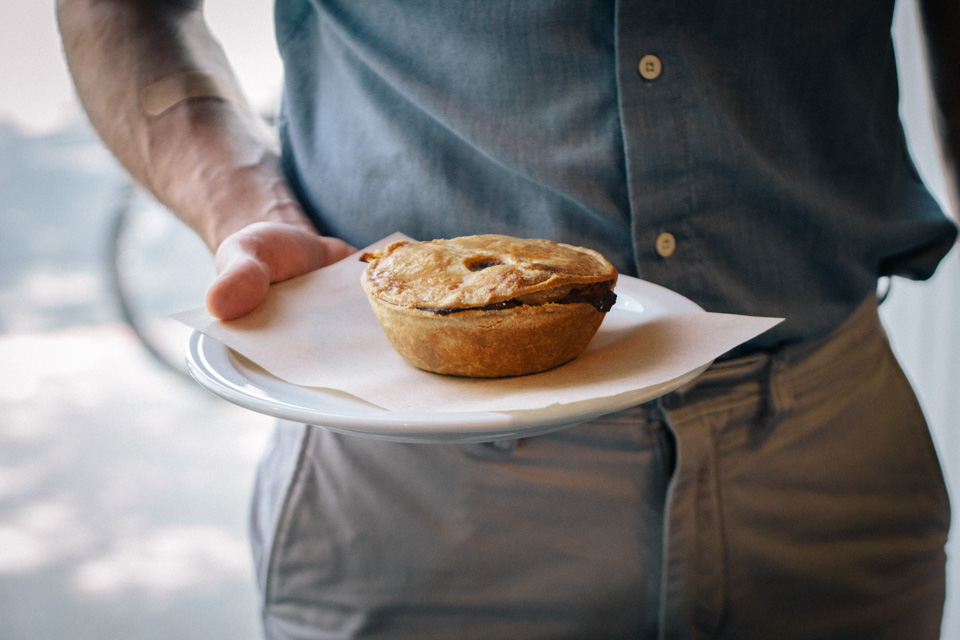
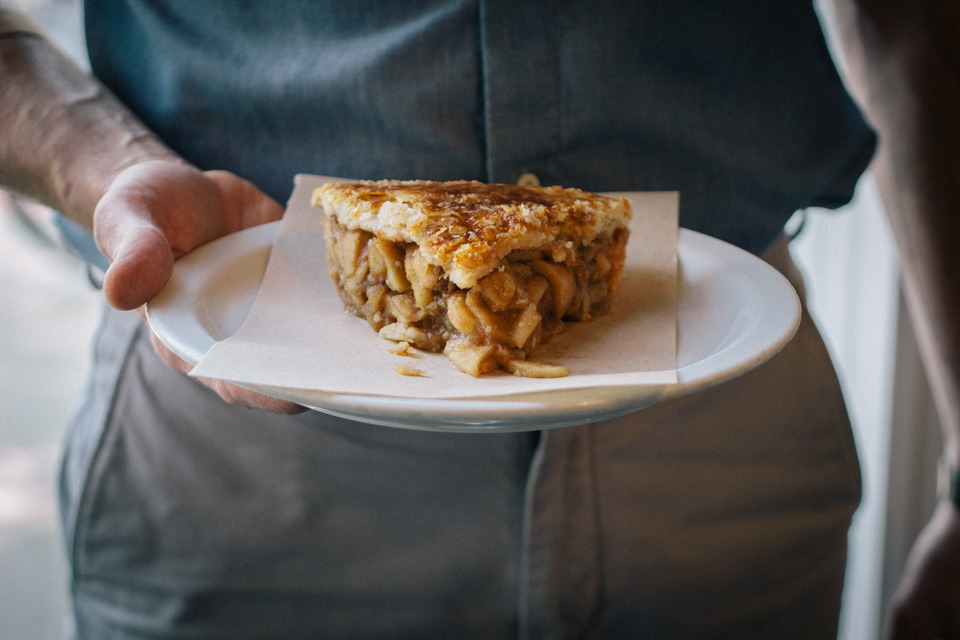
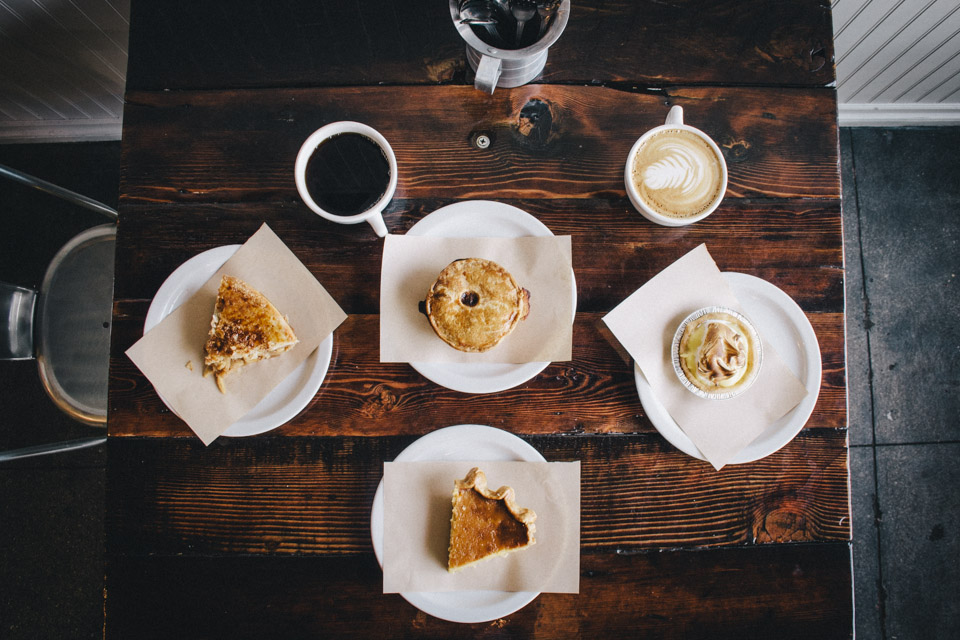
Sean: I went to school to be a teacher. I have a degree in elementary education, special education, and human development. I was a middle and high school teacher for a decade. Like any good teacher, you’re poor, and you have summers off. So I worked in the service industry concurrently the whole time.
My first job was as a caddy at a golf course, then I worked my way up to busboy, then from busboy to dishwasher, and so on. I’ve worked in bars and restaurants in a lot of different capacities for as long as I can remember. In 2007, my wife and I moved from Los Angeles—where I was teaching at the time—to San Francisco. We lived there for a few years and, at that point, I took restaurants more seriously and ended up managing a restaurant. I was still doing education stuff but I hadn’t been back to the classroom since then.
So Matt and I have known each other for a long time—we have the same group of friends. We were at a party and while drinking some beers, he’s like, “My mom and I are thinking of opening up a pie shop!” I think I literally just said, “That could work.” I was really interested. I had just opened up a restaurant for other people to make them a whole bunch of money so I thought “Man, it would be cool to do something else.”
It was pretty organic. It’s LA, everybody has an idea, everybody has a business plan, everybody has a script, everybody has a something. But there was something special about pie and coffee. At the same time, this was around the time when the economy was coming out of a recession—economically, the middle class and the working class got hit the hardest. All of a sudden people were not going out to dinner, they were going to fast-casual kind of places, like cafes with really good food. So the industry shifted to informal, high quality. We’re like “Mom’s pies—that’s exactly what that is.”
Community seems to play a big role at The Pie Hole, especially being in the Arts District and Old Town Pasadena.
Sean: We looked around the whole city for real estate. Our main criteria was community because we weren’t going to have an advertising budget and we couldn’t play with the big boys. We were just middle-class schlubs maxing out credit cards to open this place. We wanted to feel that we could contribute. We feel like pie and coffee changes people’s lives which sounds a little bit hyperbolic but we see it every day. Somebody comes in having a shitty day and they have a slice of maple custard and a cup of coffee and they leave enhanced. They’re just better off.
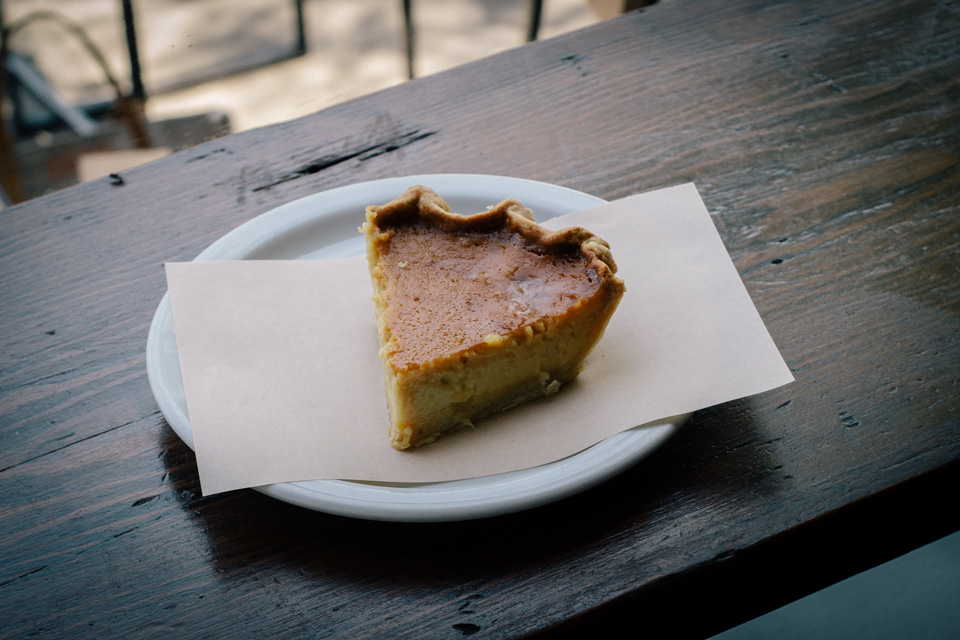
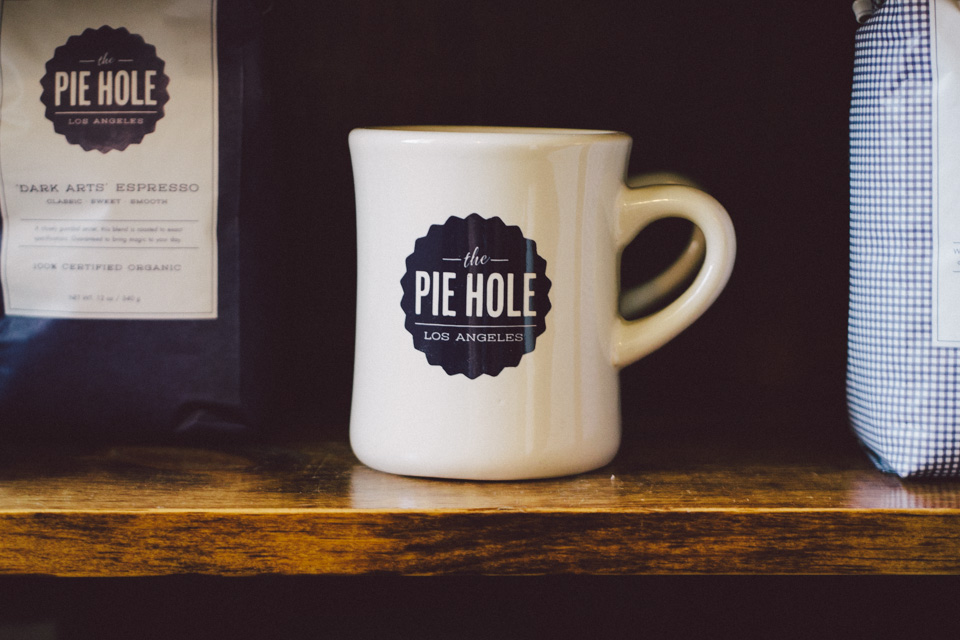
Matt: Another thing we had to fit in. In the Arts District, they either like you or they don’t. It depends how engaged you are in the community.
All of a sudden people were not going out to dinner, they were going to fast-casual kind of places, like cafes with really good food. So the industry shifted to informal, high quality. We’re like “Mom’s pies—that’s exactly what that is.”
Mom still in the kitchen baking?
Matt: She’s still back East—we coined her the R&D department. When she comes back, we roll out Mom’s specials. Baking on my mom’s scale and baking for two locations is a huge difference—one is on an industrial scale. Our first Thanksgiving, mom and I baked all of the pies ourselves—two at a time.
Sean: Her recipe was for two pies. She would do the recipe and then do it again and again. They worked the whole night.
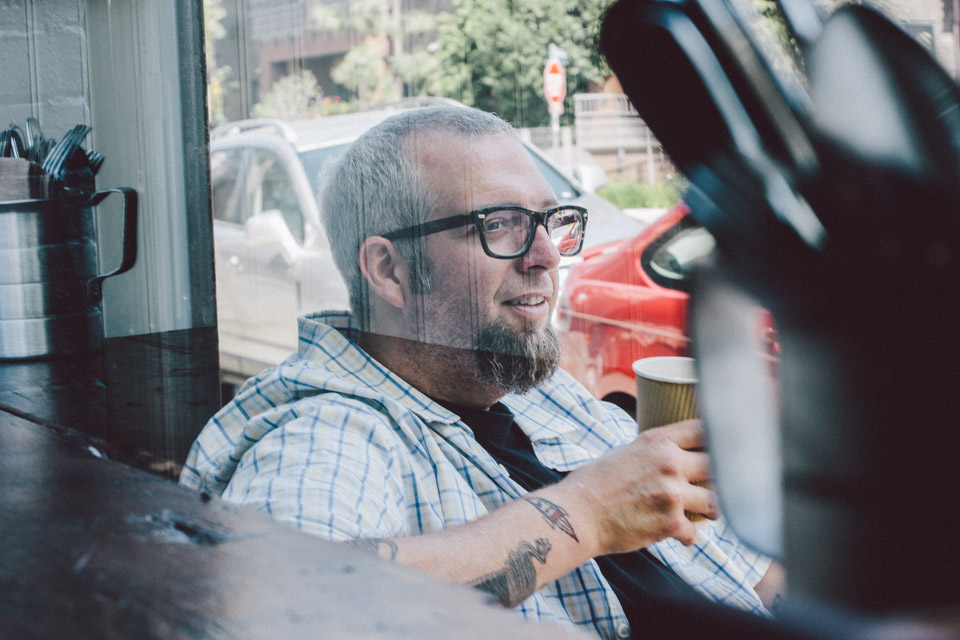
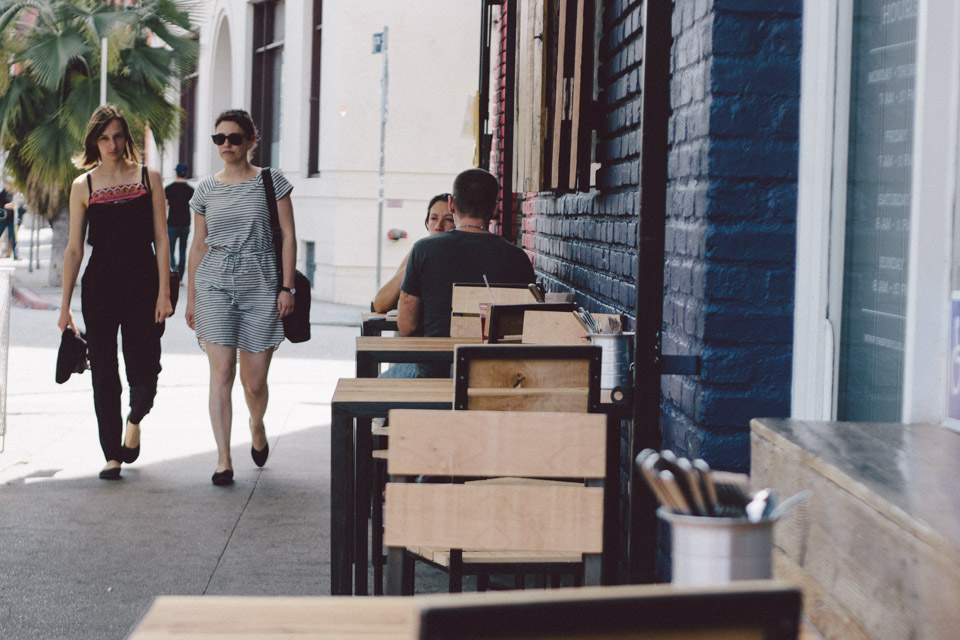
What are some of the challenges of baking pies?
Matt: The only thing that my mom taught me that translates to this is that pie is difficult. It’s not like cupcakes where you make enough batter and then pouring it into little molds. It’s a difficult process.
Sean: With the Maple Custard Pie, we’ve had since we opened. But for every 20 we make, we lose a couple. It’s so finicky. We’ve been making it for three years and we’ve made thousands upon thousands of them. Matt and I try to apply a very structured system approach to this but really, to be a baker, you have to be equal parts scientists and artists.
Matt: Mom always said pie is messy. I don’t remember a pie that we baked at home that didn’t kind of spill out on the sides. If it stands up straight and it’s perfectly wedged, chances are there’s stuff in it to make it do that. Real fruit runs and it’s hard to train people that way. You have to manage expectations. People come in and get a lemon meringue pie and the sides kinda bulge out a little bit because there’s nothing artificial about it—all natural. A lot of people haven’t had real pie.
What does food mean to you?
Sean: The worst kind of consumer is somebody who consumes food and concepts to be the first one to do it and to take a picture of it to brag about it, rather than pay attention to the person across the table from them. We really like the authenticity of a cup of coffee, a slice of pie, and a great conversation. That’s been important to me forever. When I have dinner with my wife, our phones are away, and the TV is off—it’s about the food and the people. Unless the Packers are playing.
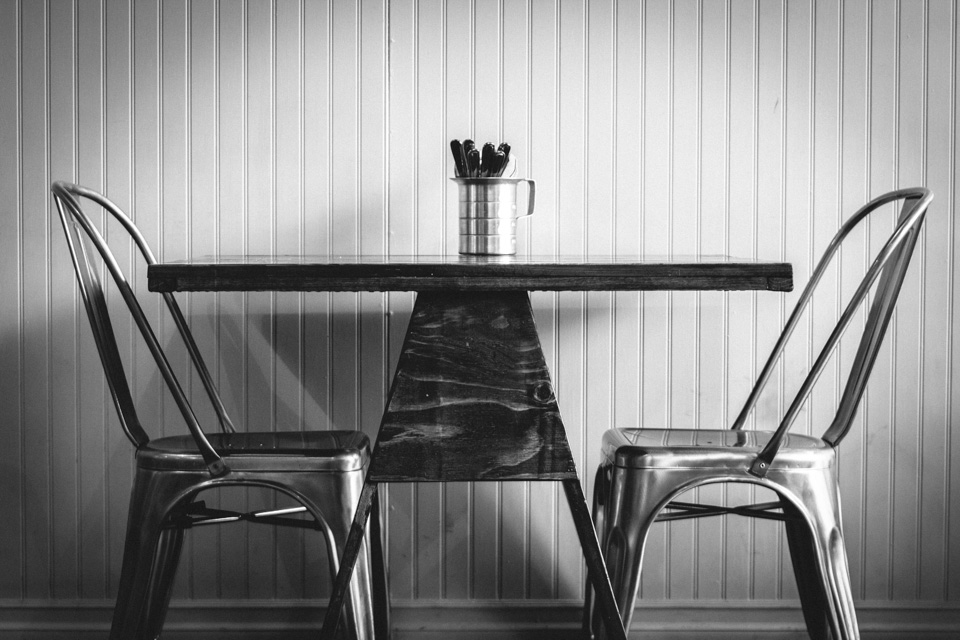
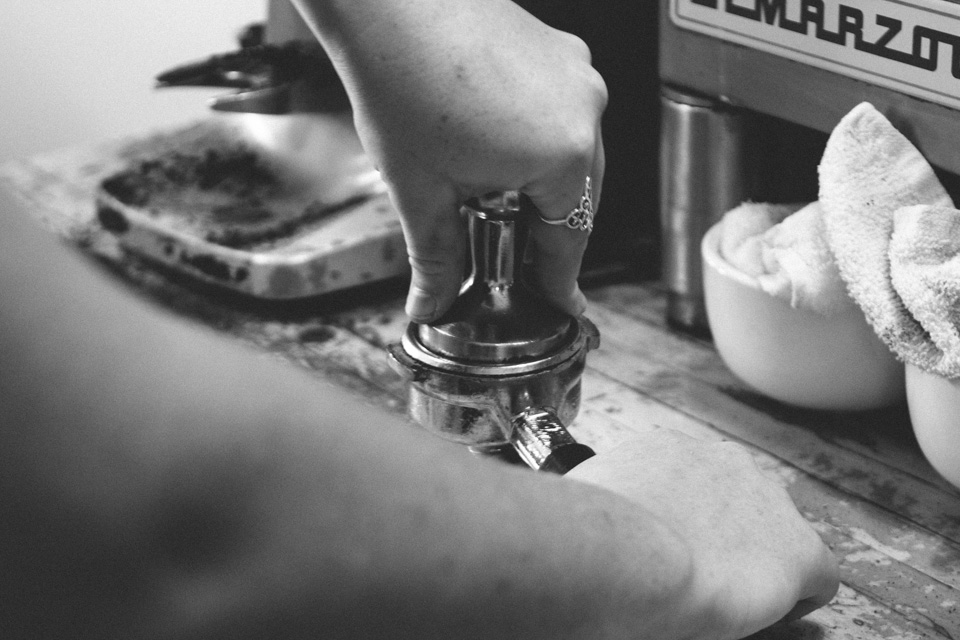
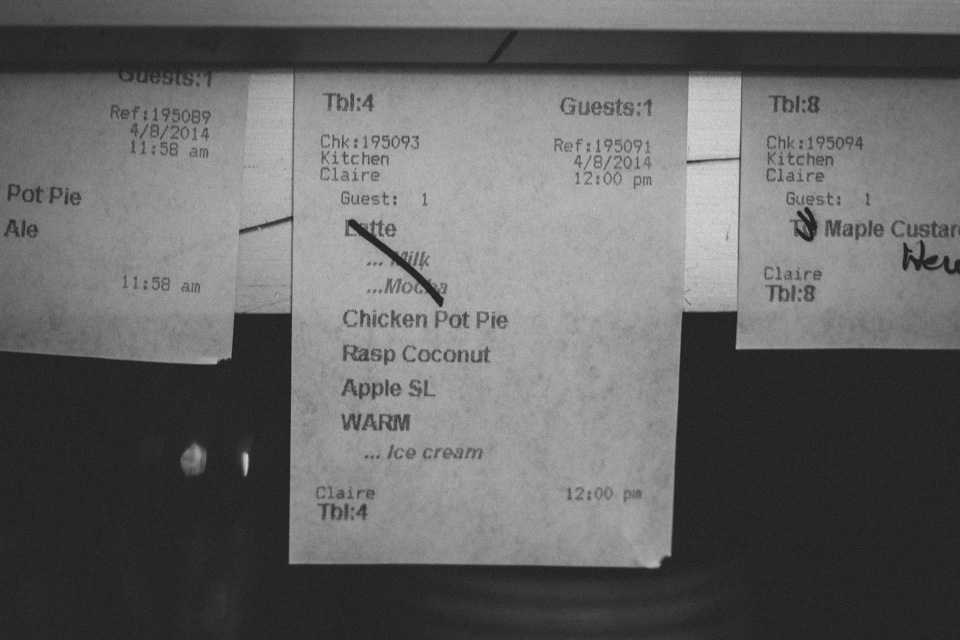
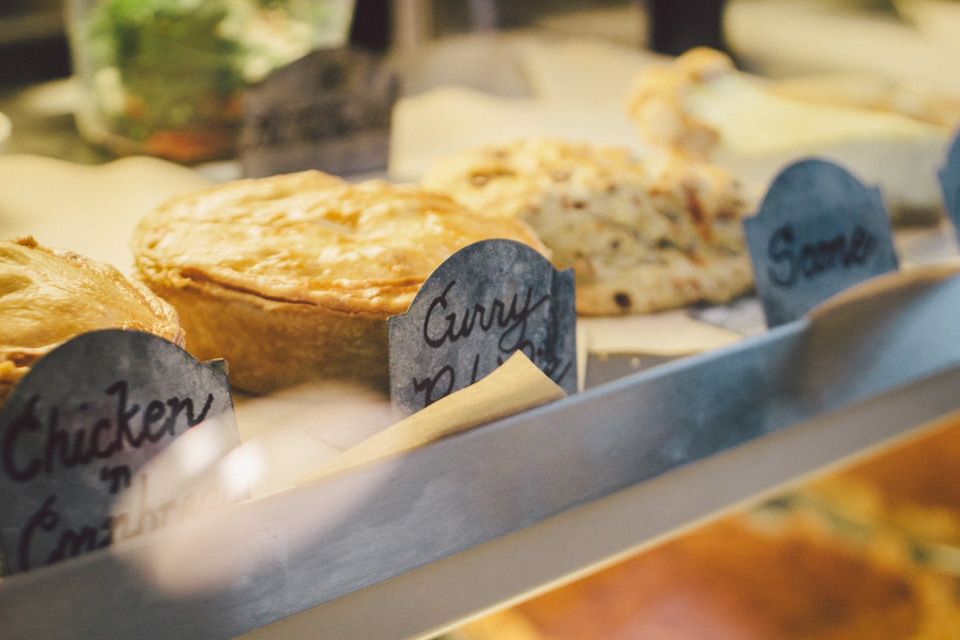
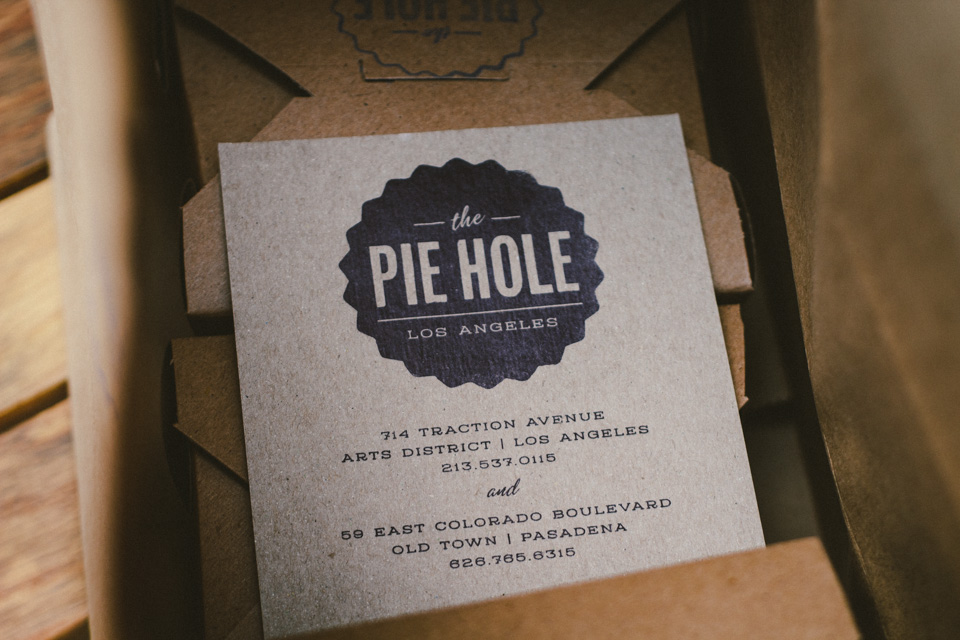
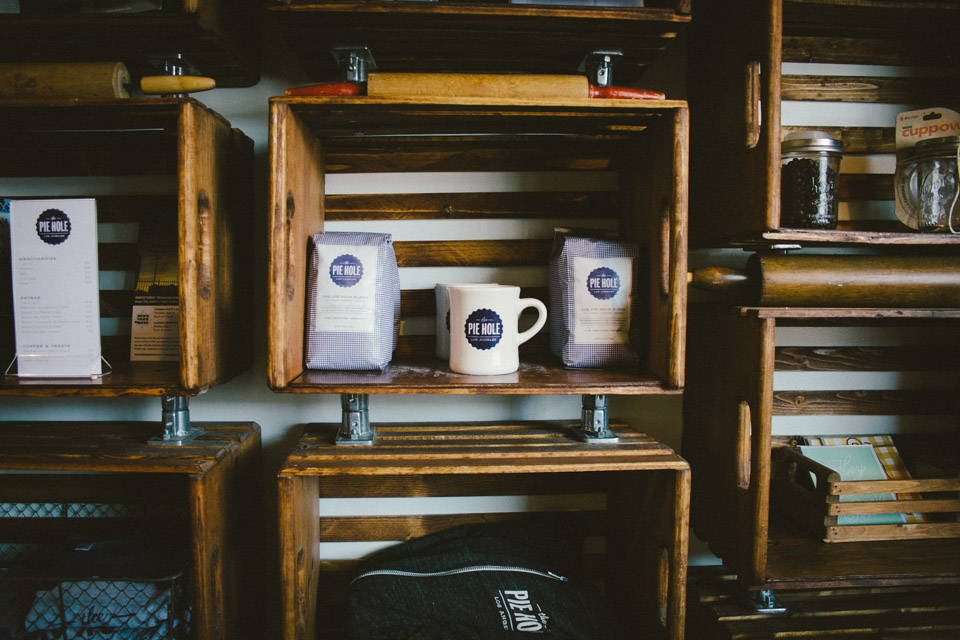
—
What to eat:
Maple custard pie, double crusted apple pie, chicken & cornbread pot pie
Locations:
Los Angeles — 714 Traction Ave, Los Angeles, CA 90013
Pasadena — 59 E Colorado Blvd, Pasadena, CA 91105





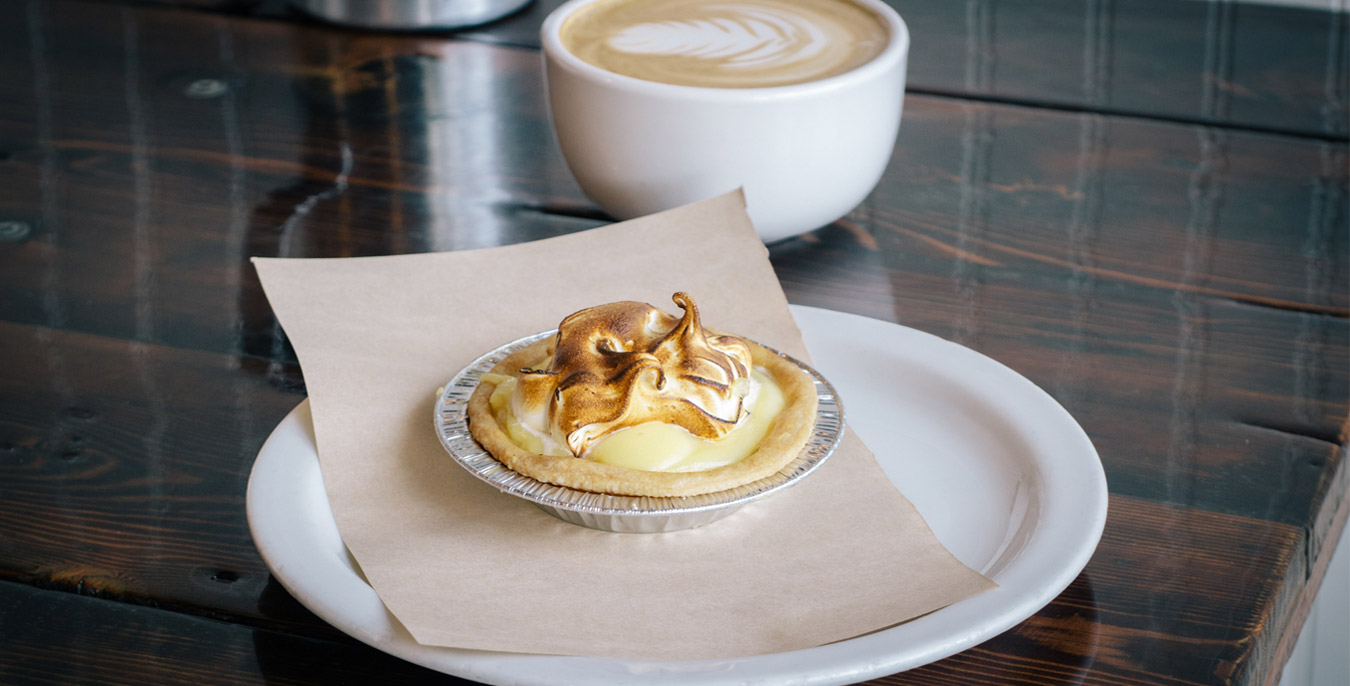

Our comments section is for members only.
Join today to gain exclusive access.